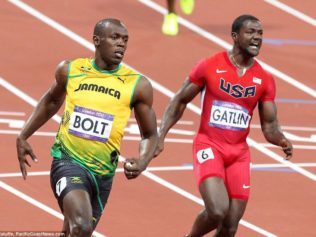A huge, amorphous, leaderless protest movement of more than one million people has spread across Brazil, hitting more than 100 cities to oppose rising bus fares, political corruption, high taxes and the government’s misplaced priorities as it spends $26 billion in preparation to host the World Cup next year and the Olympics in 2016.
Many Brazilians have compared their movement to the Occupy protests that rocked the United States in 2011, which was similarly leaderless and amorphous in its goals.
What began as a reaction to the Brazilian government’s proposal to raise more funds through a bus fare increase has grown far beyond even the expectations of the organizers, who have used social media to fuel the protests.
Protesters have even started their own media outlet to avoid reliance on the national press, which is the subject of their scorn for downplaying their grievances.
“One hundred thousand people, we never would have thought it,” Mayara Vivian, one of the founders of the Free Fare Movement, which helped start the protests engulfing Brazil, told the New York Times. “It’s like the taking of the Bastille.”
The protests that have engulfed the entire country forced the government to roll back the bus fare increases this week and caused President Dilma Rousseff to delay her trip to Japan amid the crisis.
In Brasília, the capital city, police kept the protesters away from Congress using pepper spray and tear gas. But law enforcement couldn’t keep the demonstrators from the Foreign Ministry, where they smashed windows, set a fire in the entrance and scaled the Meteor, an iconic marble sculpture in a reflecting pool.
“I saw the youth taking to the streets and I wanted to support them,” Raimundo Machado, 50, a public servant in Brasília worried about the beleaguered public health system, told the Times. “I pay for a health plan, but I can pay. What about those who can’t?”
There was a death in the city of Ribeirão Preto, as an 18-year-old protester was killed after being struck by a car.
In Rio de Janeiro, hundreds of thousands of protesters chanted and sang as they marched toward the city government, forcing police to use tear gas to disperse them. Dozens of injuries were reported as the crowd ran through an already packed street, scrambling not to be pushed into a dirty canal and using bandannas to cover their faces.
“They don’t invest in education, they don’t invest in infrastructure, and they keep putting makeup on the city to show to the world that we can host the World Cup and Olympics,” said Jairo Domingos, 26, a technical support assistant in Rio. “We work four months of the year just to pay taxes and we get nothing in return.”
“Our taxes should not go to line the pockets of Neymar and Ronaldinho,” Jean Moreira, 26, a business student in Sao Paulo, told the Times, referring to the Brazilian soccer stars. He held a sign that read, in English, “We won’t have World Cup because the giant woke up.”
“This is a remarkably diffuse movement; they don’t even use loudspeakers to get their message across with thousands of people on the street,” said Lincoln Secco, a history professor at the University of São Paulo who teaches several of the organizers in the Free Fare Movement.


